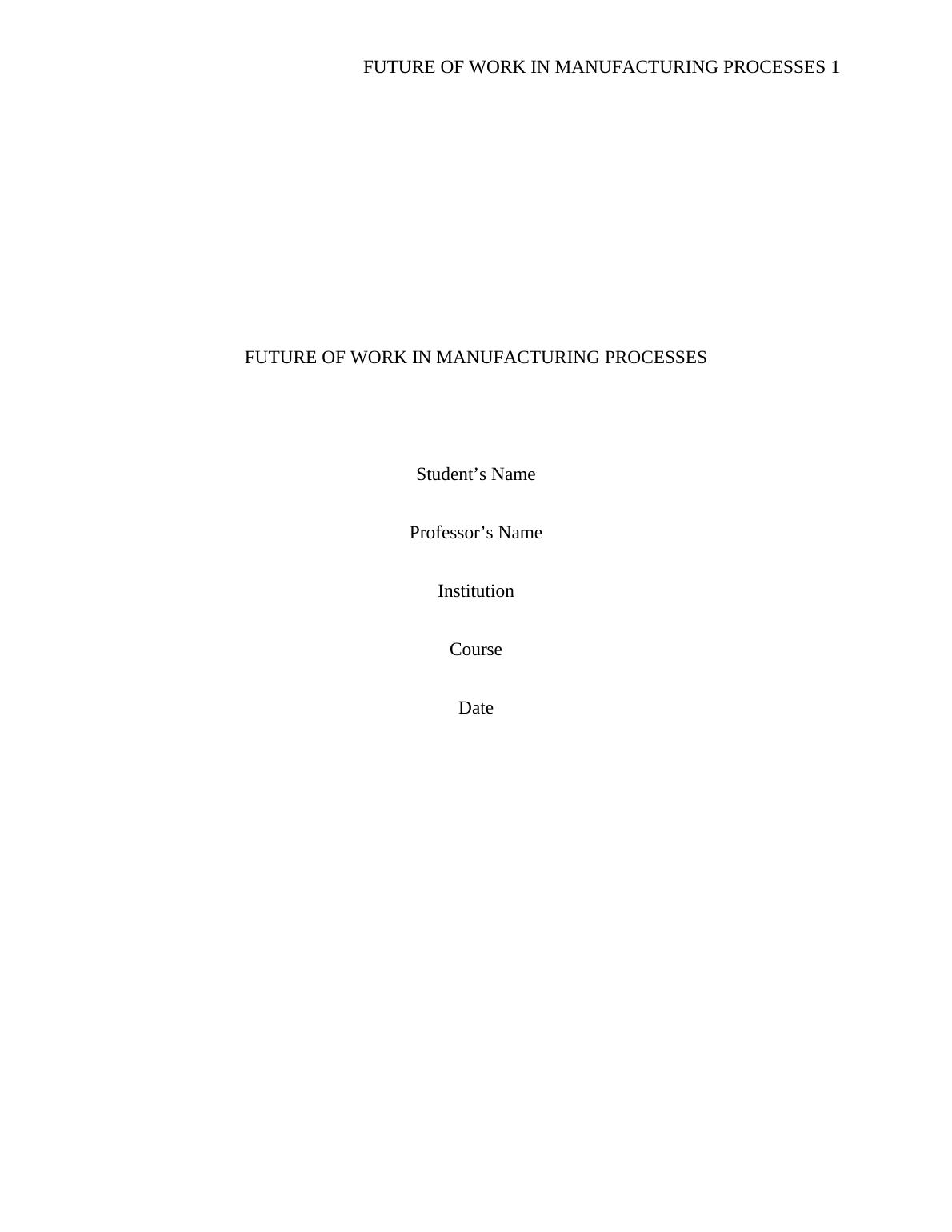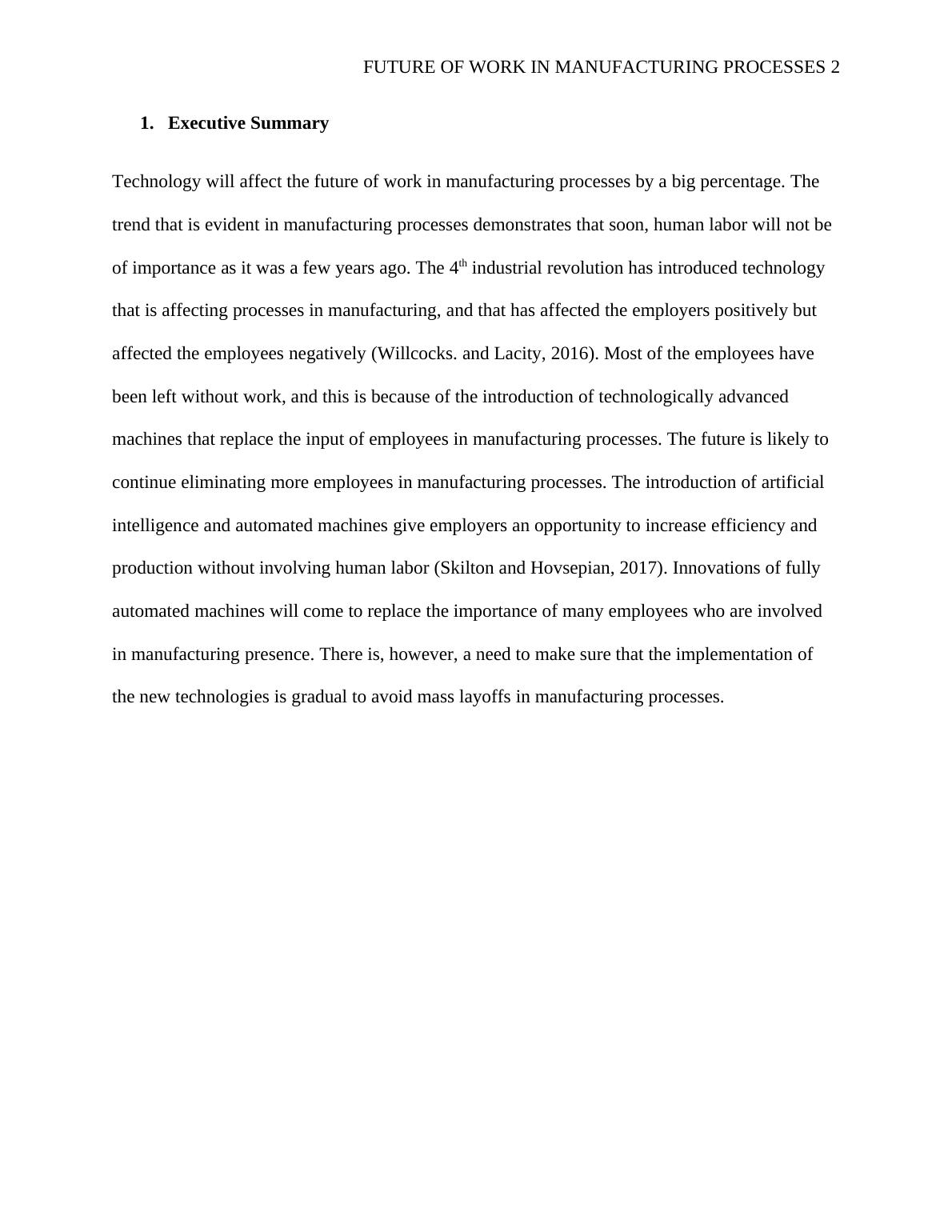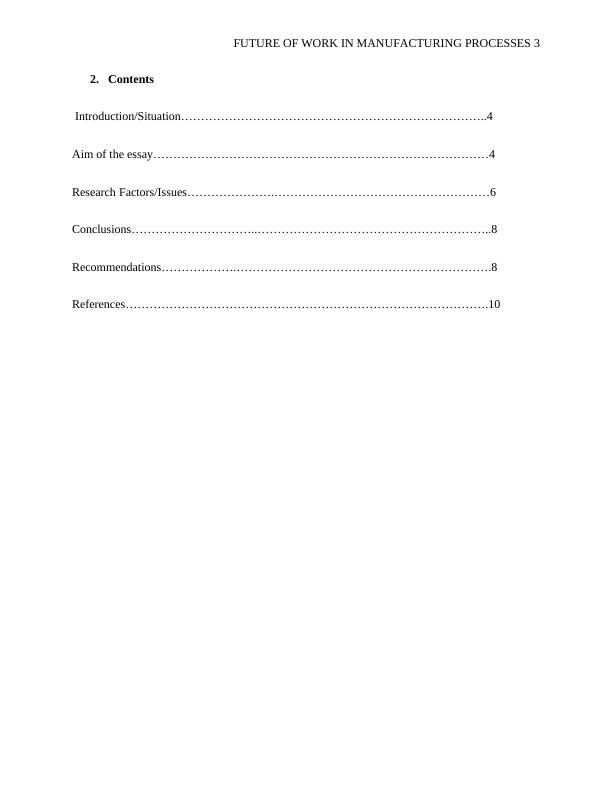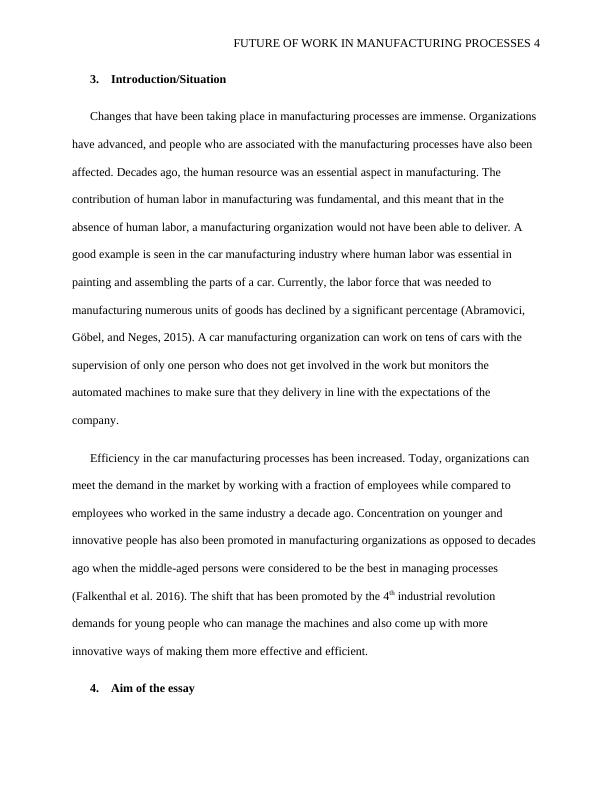Future of Work in Manufacturing Processes
This assignment requires students to consider the effects of the 4th industrial revolution on their own business operations 'future of work' and research the topic in the industry of their choice.
12 Pages2929 Words61 Views
Added on 2023-01-18
About This Document
Technology will affect the future of work in manufacturing processes by a big percentage. The trend that is evident in manufacturing processes demonstrates that soon, human labor will not be of importance as it was a few years ago. The 4th industrial revolution has introduced technology that is affecting processes in manufacturing, and that has affected the employers positively but affected the employees negatively. Most of the employees have been left without work, and this is because of the introduction of technologically advanced machines that replace the input of employees in manufacturing processes. The future is likely to continue eliminating more employees in manufacturing processes. The introduction of artificial intelligence and automated machines give employers an opportunity to increase efficiency and production without involving human labor. Innovations of fully automated machines will come to replace the importance of many employees who are involved in manufacturing presence. There is, however, a need to make sure that the implementation of the new technologies is gradual to avoid mass layoffs in manufacturing processes.
Future of Work in Manufacturing Processes
This assignment requires students to consider the effects of the 4th industrial revolution on their own business operations 'future of work' and research the topic in the industry of their choice.
Added on 2023-01-18
ShareRelated Documents
End of preview
Want to access all the pages? Upload your documents or become a member.
Industry Revolution and its Impact on Operations Management
|10
|2871
|431
Increased Use of A.I. and Robotics in Manufacturing and Tourism Industries
|10
|3364
|77
Applied Ethics and Sustainability: Should Robots Replace Humans?
|8
|1617
|473
Managing Employees in an AI Hybrid Framework Assignment
|25
|5375
|181
Performance Management For HR - PDF
|18
|3814
|217
Ethics of automation and artificial intelligence in modern Society Analysis 2022
|11
|3525
|21




